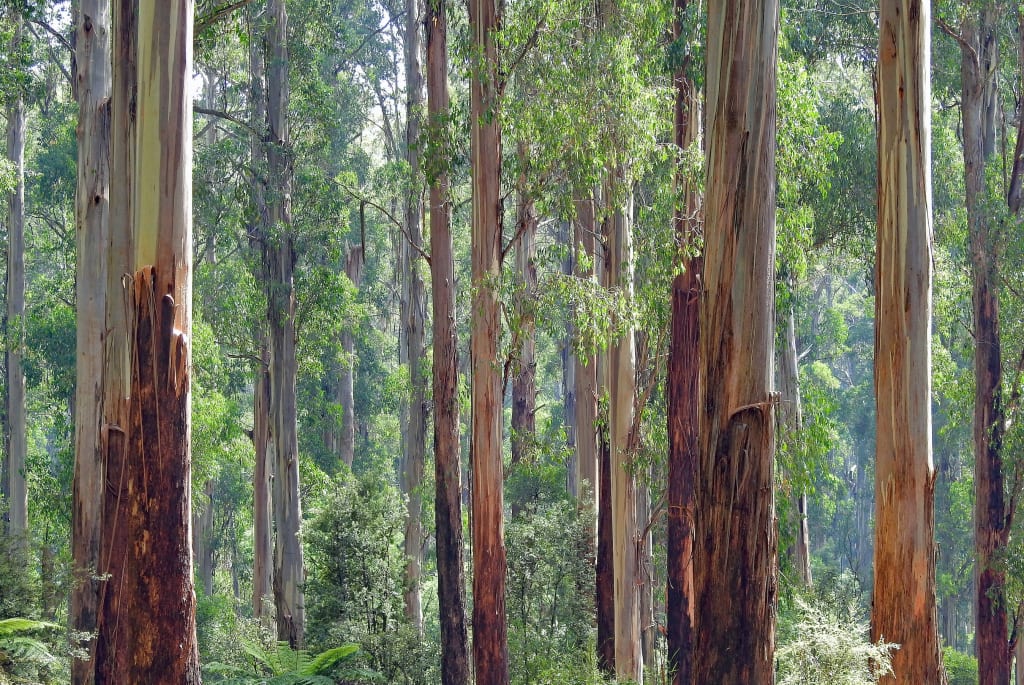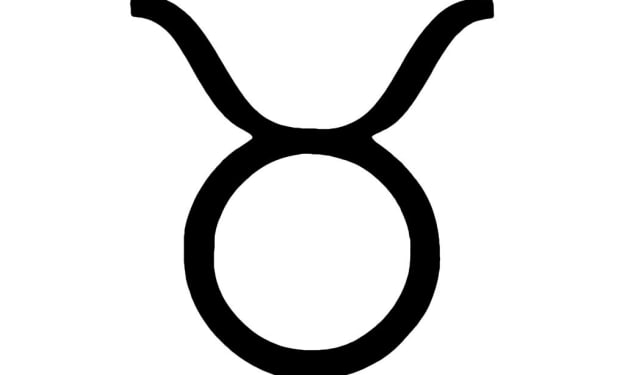Chloros
People are the problem. People are the solution.

“Ninety-four. Ninety-five. Ninety-six.”
Each curving line was a bold maroon in the wet, the yellow between them closer to gold, almost amber. The Eucalyptus tree stretched over sixty metres across the ground now. A mountain ash Dad called it, the torn up roots leaving a hole beneath them that could bury a car. As Viri stood where the forestry team had started carving up the trunk her head reached the very centre of the growth rings she was counting.
“Ninety-seven. Ninety-eight. Ninety-nine. That means it was ninety-nine years old!”
Dad was surveying the crushed branches wistfully, a fistful of leaves in his tightened hand, their oil filling the air with a strong fragrance all around him.
“Looks like the wind blew it over. Incredible.”
Viri could tell that he didn’t mean that. His voice was too empty. Incredible wasn’t a word she would use to describe this.
She hadn’t seen trees like this before. They always seemed so strong, tall and unbreakable as they poked at the sky. Fingers that reached ever upwards trying to grasp at something she couldn’t see. There were dozens of them in this patch alone, all felled and splintered just like this one, victims of the storm that had carved up the valley, wind tearing wood from the earth.
She wanted to ask why. She wanted to know how something so big and old could be broken by a breeze, how that breeze had become so strong. But most of all she wanted to know what would happen to her trees now.
When she had first walked up the dirt track there had been some smaller stands knocked down which blocked the path. But neither Viri or Dad had expected such an open canopy up here. The reports were right though. This place they had come to so many times was gone. No birds called. No orchids bloomed. Not even a bee buzzed. And through the emptiness everything had changed.
Viri felt odd. This graveyard was not something she had grappled with before. Everything seemed so suddenly fragile. She didn’t want to step out of place. Couldn’t. Even the wilted leaves hung like shadows. It wasn’t right.
The rain had been falling for weeks. The whole valley was still flooded, with no power, no school, nothing. And this place, her place, that had shone with a thousand greens had given way to a grey sky, filled with rain and smoke and silence and angst. Where the clouds had parted she could see clear through to the city now. It was a sight Viri at once came to hate. She had never liked the buildings, all the glass and noises. With the view so open she could see the trail of brake lights winding along the highway as cars crept ever onwards, progressing inch by inch, trails of grey exhaust gathering above them to add new layers to the overwhelmed air. As the thin muscles around her eyes tightened and she felt the heat grow in her neck, her teeth gritted for the strange anger that was caged behind them. When she looked at Dad she saw the same thing.
-
“More than ninety-nine percent of their forests have now been cleared for agriculture. Mostly for livestock. So the question I want to ask you today is, what does that really mean?”
Viri swiped left on her phone again as the lecturer went on. Another country, another problem. Up went trade. Down went trees. And here they were discussing the philosophy of it all.
This was her most loved and most loathed class. She often found it difficult to relate here. But not to argue. Nobody had really challenged her to think about these situations before, the idea of morals versus ethics. It all seemed so clear cut in her mind. The longer it went on, the less time would remain. Like an hourglass on humanity itself. The grains just kept on falling, and here she was waiting for a moment to be heard, to knock the hourglass from its perch. But that was cliche, and so fucking boring.
Arguing about how to think about a tree, about what value it might have, and then what everybody else saw from it made for quite heated discussion. And Viri was easily provoked. In a generation where giants had been dropped by a billion little Davids, she didn’t want to be just another voice calling those Davids wrong.
“Viridis. What do you say to that?”
She felt her eyes roll as she left her phone aglow on her knee. Her hands were more expressive than her words these days. They tended to convey meaning and win support, without ever being fairly assessed. They were after all what had been taught to scrape soil. A lesson learned from loss, not life.
“It’s always ninety-nine.” Her hands were slow, yet firm. “Every time we hear these figures. Almost like the one percent remaining is some magical bastion of hope. It’s not. It’s already gone.”
“Go on,” the lecturer said.
There was a collective murmur from around the room. Lines were being drawn.
Viri inhaled with the invitation. “We shine a light on what’s left and hope that encourages action. But every time we do we put excessive value on something that already has a target on it. Which only creates problems. It just seems like we only ever notice, or at least talk about it, when that ninety-nine has been hit. When it’s already too late.”
“So you don’t believe the one percent in this case has a raised value in and of itself? That we should act towards protection?”
“I do. Just not in spite of everything else.”
“In spite of what?”
Viri rolled her eyes towards the piqued voice from the back of the room. As always, anonymous.
“Any conversation about this always focuses on the few trees that are left. And the cost is another ninety-nine percent somewhere else that nobody was talking about. Saying that a few remnant trees now have more value, and therefore we should feel compelled, or feel good, about saving them is just another sign of human arrogance.”
She ignored the snigger from behind her as she turned forwards again.
-
Jacob had grown a new crop of foliage over the past few weeks. Viri was affectionately surveying them, noting the shade of green in each one and recording their chlorophyll concentrations. This was Viri’s favourite of the clones. J99, which she had dubbed Jacob.
She went through the chart adding a reference each time she clicked the chlorophyll meter, logging hundreds of data points this morning alone. She loved being amongst the rows of clones in this greenhouse. It reminded her of when she young. Jacob was no giant, but one day his kind could be. The other postdocs made light-hearted comments of her sentiment towards him, and true enough it was ridiculous. But Jacob, with his ambiguous gender, had formed well. His shape was exquisite, his root density above all others, and the green in his leaves proved more promising than ever. It was a slow process, but a love like this was worth savouring.
In here it wasn’t her trees that made Viri happy. It was their colour. All the hues of green. Green was not so common outside anymore. Beyond the lime of lawn grass and the olive of whatever crops were still farmed, the complex shades of green in understoreys and above had been diminished. Shades that arboreal ancestors would have known for home were now reduced to no more than an acronym on a digital colour scale. The G in RGB was their only epitaph. It was too easy to forget what they were, and what they looked like.
Here in the greenhouse Viri was working hard to bring those greens back to the world. The Davids had won in the end. With too few trees there were more and more problems. But as she and her team continued their work they edged closer to a revival every day.
The trick was in the DNA. If there were more leaves on a tree, if the chlorophyll a and b concentrations were at a perfect point, and if the chloroplasts in those leaves had enough heat and UV tolerance to withstand the sun, then the tree would thrive. This meant more carbon could be captured, but there were a lot of ifs. Getting the genetics right, along with the difficulties of hybridising different species, was taking too long. If they could get the balance correct though then there was a market waiting for the stretches of saplings they could offer. An ecological and economic saviour.
It was a dream. And it all rested on one thing. Green. These leaves would suck up everything but green light. Green light was all that remained of the spectrum, reflected back into the eyes of the simians that had set about to conquer it. The war on green had raged an age, even while the consequences were known. For that small percentage of humanity that had done what they could to protect the green world, the thought of a genetically modified supertree had become the be all and end all of a century of conservationist movements.
Here with Jacob and all the other clones, perhaps they could finally answer that hope.
-
The biggest issue remaining in the world today was humans. Too many humans. The original and persistent problem. The way Viri saw it, they may as well be the solution too.
Chloros had set about poaching her long before she had ever heard of them. Now, as she sat on her hill gazing out at an empty skyline, a flat horizon, she smirked at how this had begun.
She remembered Dad showing her a seed, helping her sow it and watch it grow. She remembered him talking about the forests and how they made him feel, dragging her up mountain sides and rivers to experience them. She didn’t get it back then. They were just trees. That green light in his eyes a reflection of the world he understood. But when she saw them fall, when he fell, she began to understand.
The problem was people.
Viri remembered being up on this hill when the big mountain ash had fallen. The ground was bare today, not even the scar of an old hole. Nothing but for Jacob growing quietly amongst a few others of his kind, sucking up the sky, trying to slowly solve it all.
The problem was people.
The whole supertree project had come undone when a fungus adapted all too quickly. As had happened a thousand times before, small signs manifested, the clumsy fallibility of mankind led to outbreak, then the trees fell again.
Chloros had a different idea. Very different.
The solution was people.
Viri had extensive experience with chloroplasts, particularly how they were coded, and Chloros had charged her with a single, absurd objective. How to get a photosynthetic organelle into a human skin cell. How to, basically, make green people.
She had laughed during that first phone call. Uncontrollably. The kind of laugh that squeezed her belly and was felt three days later. But Chloros was serious. They already had other researchers working on what this would mean for the human body, and whether it was possible to essentially build a photosynthetic human. There were so many more questions that stacked up at the time, and as her laughter gave way to scepticism, then curiosity, and finally awe, Viri accepted.
To modify a person. To quite literally have people solve the climate crisis. Preposterous or possible, the question had been asked.
Up here on her hill she stared out at the sunrise. A world without trees was sterile and bland. But as she felt the heat on her frail hands and the sugars started entering her bloodstream, it all felt just a little better.
About the Creator
Jason Sheehan
I am a conservation biologist, but words and creativity have always been my favourite tools. I like to integrate possibility with fiction in what I write. A spark quickly sets fire to my mind.
Many thanks, and please consider sharing.






Comments
There are no comments for this story
Be the first to respond and start the conversation.